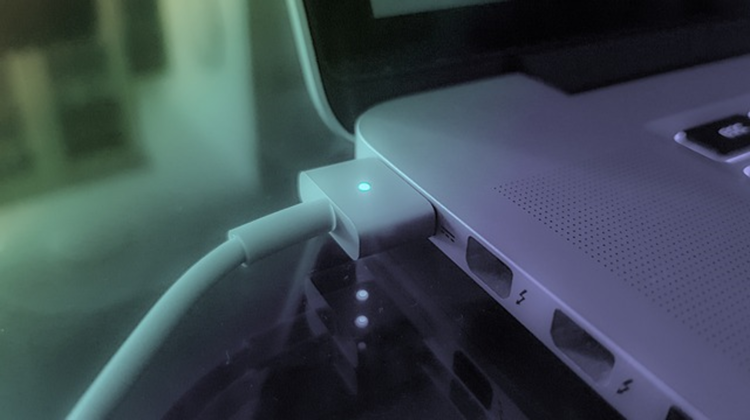Is there anything quite as maddening as a computer that is running slowly. It can be incredibly frustrating when your PC is creaking through even the most simple of tasks. Over time you tend to build-up virtual detritus that can slow your PC, and impact its performance in general. But all is not lost, here are some examples of why your computer might be running slowly.
- Too many startup programs
Programs that have been recently downloaded can sometimes find their way into your computer startup menu or login items. If too many programs are vying to start when your computer boots up it could lead to a general slow down. Certain programs such as anti-virus should be running at all times, but most others really don’t need to be opened until they are needed.
- Your hard drive is failing
Hard drives are comprised of multiple small parts that are working constantly when the computer is on. After a few years of constant spinning, it’s only natural for parts to feel the wear and tear. In contrast, solid-state drives (SSDs), don’t experience the same degradation and often have a considerably longer life span.
- Your hard drive is full – or almost full
When your hard drive reaches 95% capacity it can cause a slow down of up to 50%. There is now no space to store the temporary files used to operate the computer systems. Simply by emptying your trash, you will likely free up a significant amount of free space, but a ‘deep clean’ of your hard drive is probably needed, which can rid your computer of programs that are never used and downloads that may no longer be needed. Hopefully speeding up your computer.
- Too many add-ons in your browser
Browser extensions are designed to enhance your experience on the internet, but they can also lead to a computer slow down by using an excessive amount of processing power. You also need to be careful about what kind of extensions you have on your computer. While some might be advertised as popup blockers, they may in fact be browser adware which can significantly reduce the speed of a computer by downloading other apps, and launch popups whenever you use your browser.

- Too many programs are running at once
It’s easy to have multiple things happening at once on a computer. The way they are designed indeed facilitates this. However, the standard of your computer’s RAM (random access memory) will dictate how easily this can be done. Shifting back and forth between programs may seem fluid, but if your computer’s processing power can’t keep up, you will experience a slowdown.
- Too many open browser tabs
It’s something we’re all guilty of at times. You look up at your tabs and are shocked by how many are currently open. It can be easy to do when you are researching and are switching quickly between multiple tabs. But make no mistake, this is putting a strain on your RAM. If you only have a little RAM memory left, the hundreds of tabs that you insist on keeping open are considerably slowing down the computer
- Rogue programs
You might think that it is a video or music app that is eating into your computer’s processing power, but it’s always worth checking what programs are currently running. Sometimes programs can become stuck in a loop, or have encountered an error and can’t close properly.
- An overzealous antivirus program
Antivirus programs are an important part of any computer, but a program that is forever running background checks while you are trying to work could be why your computer is running slowly. Some scans can take a few hours to complete, which can seriously eat into processing power.

- Your computer has a virus
Viruses, spyware, and malware can cause havoc on a computer. Often responsible for pushing advertising or phishing sites, to crashing your computer, or even worse. Nowadays viruses will typically install a malicious program that will run ads randomly, that has the potential to generate income for its creator.
- Too much dust
Sometimes the problem doesn’t lie inside the computer, but outside. Too much dust in the room could prevent the ventilation that functions to cool the processor. This could lead to a slow down, but considerably worse, if left could result in a major malfunction if the heat build-up continues.
- Somebody is attempting to crypto mine your computer
A slow computer could mean that a program or an ad is using your computer to mine cryptocurrency. This is normally because of code on a website and remains a legal grey area because technically it is not adding or taking anything from your system, but it can cause a slow down nonetheless. Basically it means that a website can piggyback your system and use its processing power to cryptomine.
- Not enough memory
This is surprisingly common. If you have done a deep clean, and modified your browser habits and are still experiencing a slow computer, it might be time to consider an upgrade by adding additional RAM. One of the biggest reasons that a computer may experience issues when using programs like photoshop with heavy graphic content, is that the system they are using it on simply cannot cope with the amount of processing needed for those programs.
- Have you tried restarting?
You would be surprised how often this works. Lots of programs and processes can get into a log jam and slow the computer down. Simply by closing a program, it doesn’t mean that it is completely closed. This is probably the first thing you should try if you are experiencing a slower than normal computer.
About Mustard IT, your security partner
Mustard IT is a trusted team, experienced in security and able to explain complex issues to you in a language you’ll understand. Contact us today to find out how we can help you.




